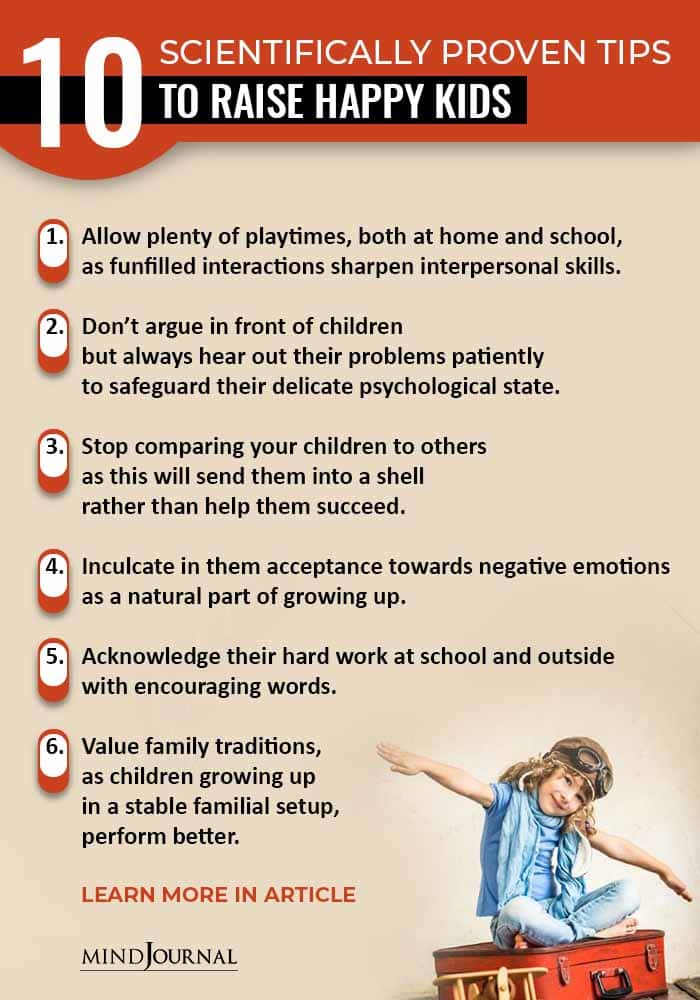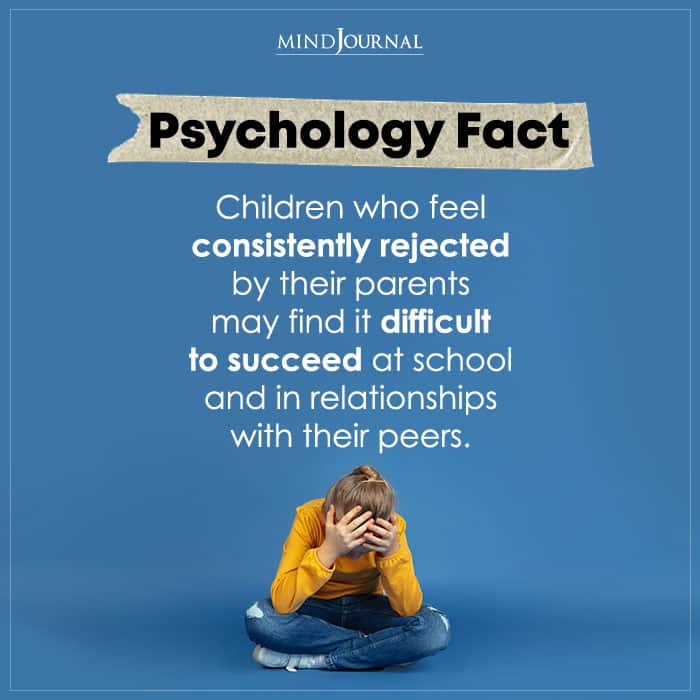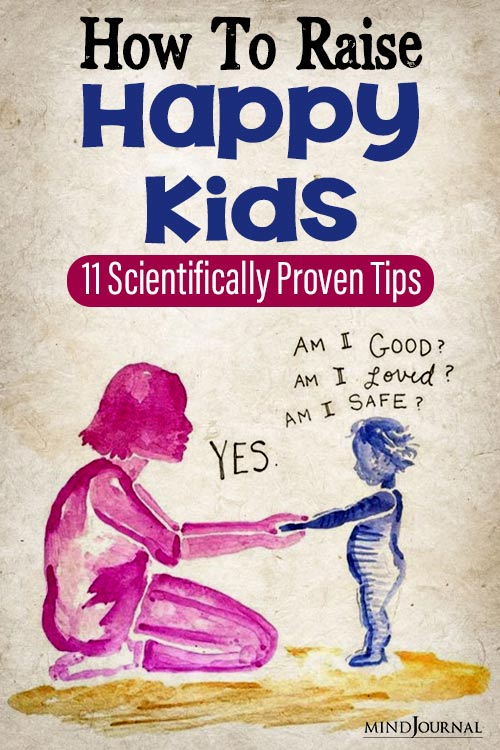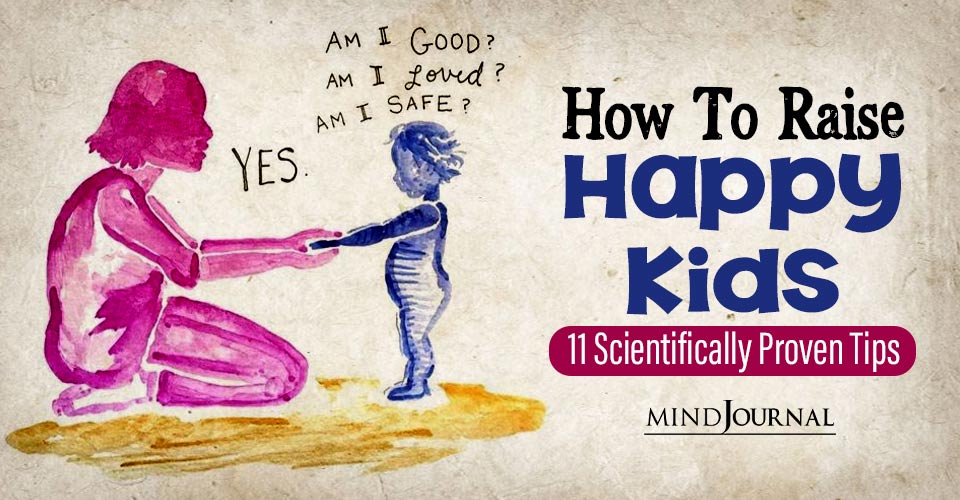The role of parents in their child’s success is quite crucial. While there isn’t a special recipe on how to raise happy kids, there are things that scientific research has pointed out, and how it helps them become better humans and ambitious being!
If you want your child to become successful in their lives then follow these things that parents of successful kids do. The quality of parenting that a person receives in his growing up years pretty much shapes his personality and worldview.
Right parenting sets up the kids for success and happiness in their lives. According to science, there are few key traits that parents of successful kids have in common.
How To Raise Happy Kids: 11 Scientifically Proven Tips

1. They model good relationship dynamics
Harvest University has been running a Grant study since 2003 to find out what’s the single thing that leads to health and happiness.
The result from the 75 years of study and analysis was pretty surprising. It revealed that the answer to health and happiness does not lie solely in acquiring wealth or fame. The answer instead lies in relationship dynamics. The message that came out was loud and clear: Good relationships keep us happier and healthier. Period.
Successful parenting, therefore, involves teaching their kids the importance of relationships and how to nurture them the right way. Successful parents model good relationship dynamics as a couple as well as with their family and friends to teach their kids to build healthy relationships.
Related: 8 Common Practices by Parents That Keep Their Children From Being Successful
2. They praise and encourage their kids the right way
Successful parents instill in their kids “Growth Mindset” instead of “Fixed Mindset” by praising them for positive habits and efforts instead of just results achieved or their innate abilities.
Let’s understand with an example:
Don’t praise the kid for the grade that she got, but for the amount of hard work that she put in to get that grade. Don’t praise for winning a race but for all the hard work and sweat that she put in during the practice which led to the result. Don’t praise her saying “You’re such a talented singer”, instead of praising her saying “You sound so good after so many hours of practice.”
This would instill in kids lifelong positive habits and a growth mindset instead of being complacent in a fixed mindset.
Related: How to Raise Spiritually Awakened Children
3. They spend quality time with their children
“The time and quality of the time that parents devote to them indicate to children the degree to which they are valued by their parents. Some basically unloving parents, in an attempt to cover up their lack of caring, make frequent professions of love to their children, repetitively and mechanically telling them how much they are valued, but not devoting significant time of high quality to them.
Their children are never totally deceived by such hollow words. Consciously they may cling to them, wanting to believe that they are loved, but unconsciously they know that their parent’s words do not match up to their deeds.”
– M Scott Peck
It is very important that parents spend quality time with their kids along with making verbal affirmations of love. It makes them feel valued and loved beyond any doubt and helps in creating a healthy sense of self that they carry throughout their life.
4. They encourage them to do their chores on their own
“Teach them the skills they’ll need in real life, and give them enough leash to practice those skills on their own,”
– Lythcott-Haims
Successful parents teach their kids responsibility and problem-solving by giving them time and space to do their chores on their own.
By doing things on their own, kids uncover their hidden capacities. By taking more accountability they become more confident and get prepared for facing the world on their own when they grow up.
5. They ensure that their kids know that are always loved and supported
“Parents who respond to their children’s emotions in a comforting manner have kids who are more socially well-adjusted than do parents who either tell their kids they are overreacting or who punish their kids for getting upset,”
– Nancy Eisenberg, Child Psychologist – Arizona State University.

Kids are just as human and imperfect as anyone else and therefore parents should not put up unrealistic expectations on them.
If the parents express their love to kids only when they reach their perfection benchmark and withhold it when they fumble, they will end up raising a kid who will be very insecure and unsure of himself.
Related: 10 Reasons Why Your Grown Kids Don’t Like You
It is important for parents to instill in their kids the belief that they are always loved and supported and that love is not dependent on being perfect all the time.
6. They teach them resilience and discipline
Resilience is the capacity to recover quickly from difficulties. In the words of Sir Winston Churchill, it is the quality that enables people to “Go from failure to failure without loss of enthusiasm.“

Successful parents teach their kids the importance of resilience, perseverance, delaying gratification and discipline by showing them some tough love and encouraging them to work through their problems instead of giving up or looking for instant gratification.
This is why successful parents adopt the tactic of praising the kid for the effort instead of the result, to encourage them to preserve and work hard and not be daunted by failures and setbacks.
Related: 5 Ways To Build Emotional Intelligence and Resilience In Kids Right Now
7. They do not give in to all the demands of their kids
If parents give in to all the demands of their kids, they grow up with a feeling that they are the center of the universe and the whole world owes them.
These tactics make the child grow up to be self-absorbed and self-centered without being sensitive to the needs of others around him.
It is important to raise the kid with the awareness of his duties and responsibilities and the work he needs to put in to get what he wants instead of thinking that the whole world owes him.
Related: 4 Things You Can Do To Keep Your Kids Encouraged And Inspired
8. They encourage dialogue with the kids
Successful parents encourage open and healthy communication with their kids. They actively listen to their kids.
It makes the kids feel important when their opinions are heard and it also cultivates in them the art of self-expression.
It also teaches the kids that lots of issues can be solved with open and healthy communication and this skill helps them immensely to have healthy communication patterns as they grow up.
Related: What You Can Do To Help When Mistakes Upset Your Kids
9. They themselves act as responsible adults and model right behavior
Children learn more through example than through words. They learn by observing everything around them and try to imitate that.

Successful parents teach their kids responsibility by acting in responsible ways. They act responsibly towards nature, fellow citizens and practice the right behavior.
10. They understand their kids love language
According to Gary Chapman, we have five love languages:
- Receiving gifts
- Quality time
- Words of affirmation
- Acts of service (devotion)
- And physical touch
Every person has his own love language i.e. the way he prefers to give and receive love. Successful parents not only understand their kids love language but also communicate with them in that language. It helps the child to feel loved and addresses all his emotional needs.
11. They don’t compare their kids with others
Successful parents help the child to bring out his unique identity. They don’t fall into the Comparison trap and do not force the kids to become something they are not. They do not burden their kids with unnecessary judgment and peer pressure.
They encourage the individuality of their kids and help them to uncover their unique talents and potential.
So, these are 11 things common in parents of successful kids according to science. What do you think, are you the habits of parents of successful kids like? Share your thoughts in comments.











Leave a Reply